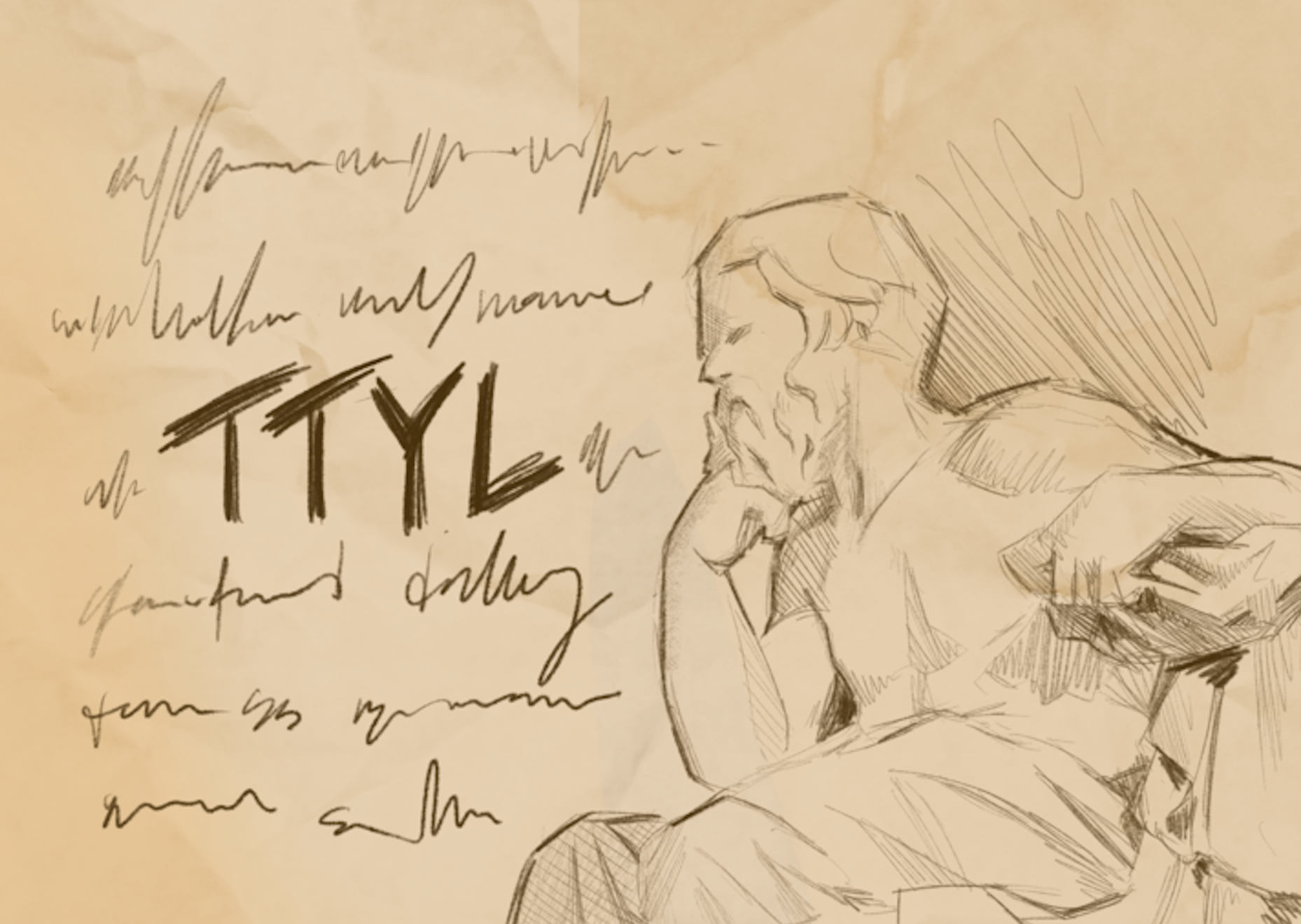In her bi-weekly column, Text to your life (TTYL), Sonnet Xu examines classics from years past that are timely in their messages to this day. Maybe the classics still have something to say.
With Admit Weekend just around the corner, I can’t help but wonder what Stanford’s incoming class of 2028 will look like. How many John Steinbecks might there be? Will we get another Mae Jemison? How many firsts, bests, and world-known figures will start their journey at Stanford next year?
Thinking back to my NSO and the beginnings of my freshman year, I remember talking with a dormmate about how sometimes Stanford feels like a simulation. Wake up. The sun is shining. Go to class. I find myself in Gates Computer Science, the Huang Basement or biking past Munger Market, living life between massive buildings named after people that seem larger than life. Calling my brother one day, I joked, “Wouldn’t it be nice for one of these to have my name on it one day?”
The quest for a legacy has been around since antiquity. “The Epic of Gilgamesh” grapples with this question, as Gilgamesh seeks to leave behind a lasting legacy, both through his feats and his quest for immortality, hoping to transcend death and be remembered for eternity. He ventures through the Cedar Forest with his friend Enkidu to defeat the monstrous guardian Humbaba and gain fame and glory. Despite Humbaba’s pleas for mercy, they slay the guardian, demonstrating their hubris and angering the gods. Gilgamesh goes on to recklessly reject propositions from Ishtar, the goddess of love and war, resulting in the death of his best friend. Prompting his quest for immortality and his eventual acceptance of mortality, Gilgamesh returns to Uruk, wiser and humbled by his experiences. He accepts his mortality and decides to focus on his legacy as a king and leader.
Let’s put a Stanford spin on this story. Young Stan arrives at Stanford, seeking to leave a lasting legacy, live the Stanford Dream and maybe even have a building named after him. He ventures through the entrepreneurial ecosystem, automating thousands of jobs and eliminating industries in the process, despite the concerns of various stakeholders. He goes on to offend too many powerful people, and then what? Does Stan complete the redemption arc or does he become another sad dot on Stanford’s impressively large list of achievements?
Though it’s one of the earliest written works in human history, having been transcribed thousands of years ago, “The Epic of Gilgamesh” has lessons for today’s Stanford students more so than ever. While Hewlett and Packard breathed life into SIlicon Valley, recent years have been clouded by Elizabeth Holmes’s Theranos and a whole slew of questionable endeavors with mixed results and impacts. The quest to be “the best” often comes with a whole bag of issues and results that can take decades to unpack.
“There is no permanence… From the days of old there is no permanence. The sleeping and the dead, how alike they are, they are like a painted death.”
Gilgamesh
From “The Epic of Gilgamesh,” people should reflect on leaving a legacy not solely about achieving fame or riches, but rather about impact on others through acts of friendship, wisdom and leadership. Gilgamesh went through a journey so that, hopefully, we wouldn’t have to. By embracing the fleeting nature of life and focusing on meaningful connections and contributions, we can leave behind a lasting legacy that extends beyond our own mortality.
To the class of 2028, my fellow Trees, but honestly, mainly to myself, I hope that we (I) can see beyond the flashy appeal of a building name, a news headline or a spot on Bloomberg’s Billionaires Index.
“Where are you hurrying to? You will never find that life for which you are looking. When the gods created man they allotted to him death, but life they retained in their own keeping. As for you, Gilgamesh, fill your belly with good things; day and night, night and day, dance and be merry, feast and rejoice. Let your clothes be fresh, bathe yourself in water, cherish the little child that holds your hand, and make your wife happy in your embrace; for this too is the lot of man.”
Gilgamesh
